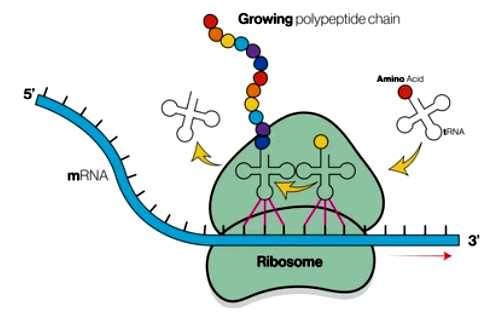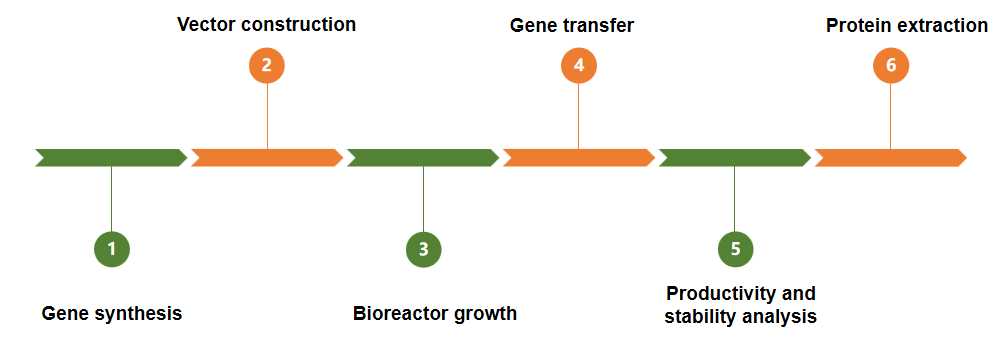Plant-based protein production services typically produce desired target proteins through a number of plants, such as tobacco, tomato, and corn. Plant-based protein production systems offer an inexpensive and simple way to produce proteins, and the unique cellular mechanisms of plants, the absence of animal viral contamination, and the relatively low cost of production make plants an ideal choice for producing recombinant proteins.
Lifeasible is an industry leader in protein production, and we have built various plant-based protein expression systems to provide advanced and reliable recombinant protein production services. Partner with us, and we will provide you with a complete service from specific genes to purified proteins and a diverse selection of protein expression systems.

The tobacco expression system is a proven platform for transient and stable protein expression. It is ideal for the rapid generation of high-yield recombinant proteins or for integrating genes into plant genomes for long-term production. We can provide rapid expression for short-term studies or stable expression for large-scale protein production. Transient systems can be used for quick turnaround times, while stabilized systems can facilitate the generation of transgenic tobacco plants for consistent and sustainable protein production over time.
Lettuce is a versatile transient and stabilized expression system, often selected for its rapid growth cycle and ease of transformation. It is particularly suited for expressing plant-derived proteins or proteins that require post-translational modifications similar to those found in other higher plants. We offer transient expression in lettuce for rapid protein production, as well as selection for stable transformation to create high-yielding transgenic plants.
The rice endosperm-specific expression system is particularly favorable for large-scale protein production, especially for proteins that need to be expressed in large quantities. The endosperm provides a rich, nutrient-rich environment ideal for accumulating recombinant proteins. We utilize this system for high-volume, cost-effective protein production, especially when large quantities of protein are required for industrial or pharmaceutical applications.
Plant cell suspension culture provides a scalable and controlled environment for recombinant protein production. The system allows for sustained cell growth and protein expression in liquid media suitable for industrial-scale production. We offer advanced plant cell suspension culture services that optimize protein yield and consistency by producing proteins in a controlled bioreactor environment.
The hairy root system is a powerful tool for producing complex proteins and secondary metabolites. It is based on the transformation of plant roots using Agrobacterium, resulting in highly stable and fast-growing root systems that can be cultured for protein production. We offer services for generating and maintaining hairy root cultures for protein production, especially for proteins that require post-translational modifications of specific plant origin or are difficult to express in other systems.
 Fig.2 Our service process. (Lifeasible)
Fig.2 Our service process. (Lifeasible)
Lifeasible provides plant-based protein production services, including customized protein design, expression and purification services, for a wide range of life science research applications. Our protein production platform enables efficient production of high-quality proteins, ensuring purity, quality and yield. If you are interested, please feel free to contact us.